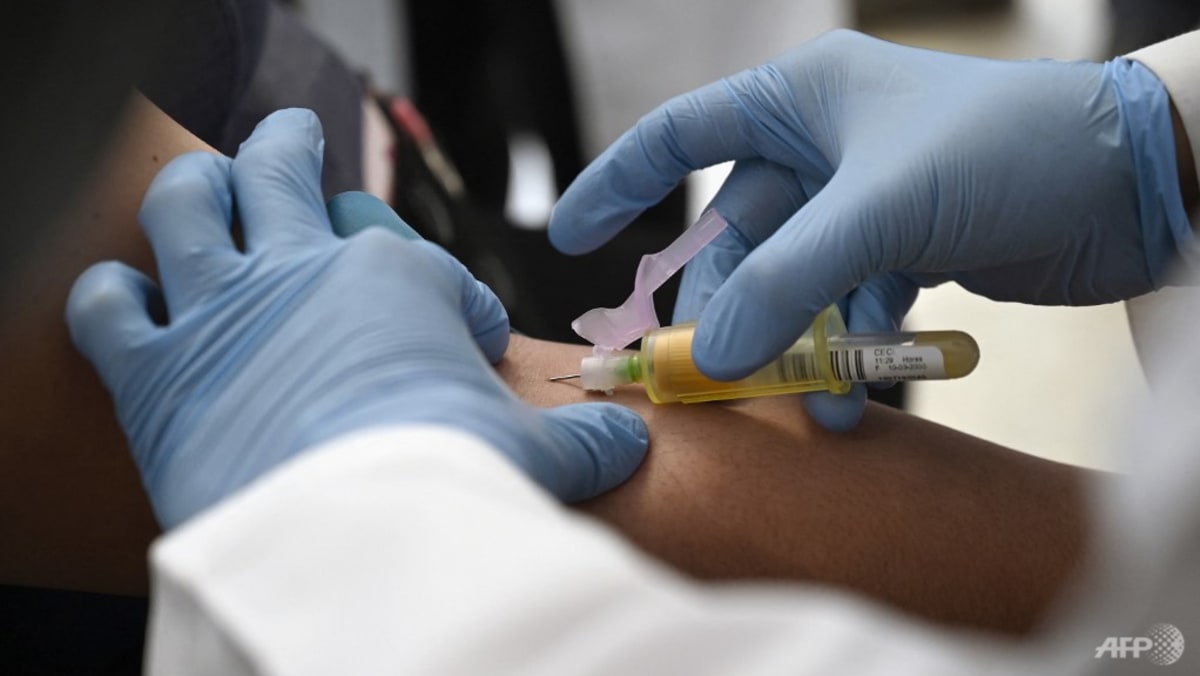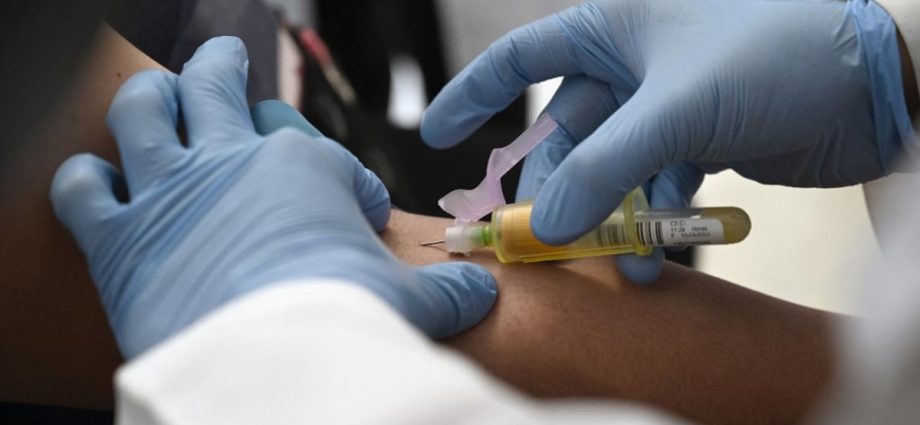
RECOMMENDATIONS BY NATIONAL HIV PROGRAMME
Separately, a team of doctors from the National HIV Programme has recently developed a set of recommendations for more people to voluntarily get tested and catch infections earlier.
These recommendations were published last month in a review article in the Singapore Medical Journal.
The National HIV Programme is run by the respective clinical HIV programmes under the National Centre for Infectious Diseases, National University Hospital, Singapore General Hospital and Changi General Hospital.
The doctors recommended that all those aged above 21 – except females above 65 – should be offered HIV screening at least once in their lifetime, unless they have risk factors that warrant repeated screening.
Those who engage in high-risk behaviour, such as those with a history of injection drug use or those with multiple sex partners, should also be screened for HIV at least once a year, they said.
For high-risk individuals who are being tested for the first time, or do not have sufficient education on the implications of an HIV test, the doctors said pre-test counselling is strongly encouraged.
HIV testing is traditionally performed at hospitals, clinics and through services provided by community-based organisations. Several, including local non-profit organisation Action for AIDS, offer anonymous testing.
The doctors also recommended that healthcare and HIV testing service providers encourage individuals to disclose their HIV status to their spouse, current sex partners and previous sex partners. They should also be encouraged to get tested.
Positive HIV results should be told confidentially and in person by physicians or other skilled staff due to the risk of discrimination and stigma, the doctors added.
In their article, they pointed to the “95-95-95” targets set by the Joint United Nations Programme on HIV/AIDS in a bid to end the epidemic.
These targets are getting 95 per cent of all people living with HIV to be aware of their diagnosis by 2030; 95 per cent of those diagnosed to receive sustained antiretroviral therapy; and 95 per cent of those receiving antiretroviral therapy to achieve viral suppression.
The doctors noted that estimates based on data from 2020 indicate that 82 per cent of people in Singapore who have HIV infection know their status; 93 per cent of those who are aware of their status are on antiretroviral therapy; and 94 per cent of those on therapy have sustained viral suppression.
“Hence, more can be done to increase the uptake of voluntary HIV testing with a view to reduce the number of late‐stage infections at diagnosis,” they wrote.
“Early detection of infection allows earlier initiation of antiretroviral therapy, which reduces the risk of developing serious AIDS‐related events, serious non‐AIDS deaths or deaths by at least 50 per cent.”
HIV attacks the body’s immune system, specifically its white blood cells. There is no cure but with treatment, an HIV-positive individual can maintain an undetectable viral load.
This means there is effectively zero risk of transmitting HIV to their sexual partner, even if they do not use condoms during penetrative sex.
HIV-positive individuals who do not get treated can develop AIDS (acquired immunodeficiency syndrome), which is potentially fatal. This typically takes anywhere between five to 10 years.
Other than unprotected sex, a person can contract HIV by sharing injection equipment, contaminated blood transfusions and organ or tissue transplants. It can also be passed from a mother to her unborn child.
Those who want to learn more about HIV and AIDS, and find out where to get HIV testing, can go to go.gov.sg/preventhiv.

